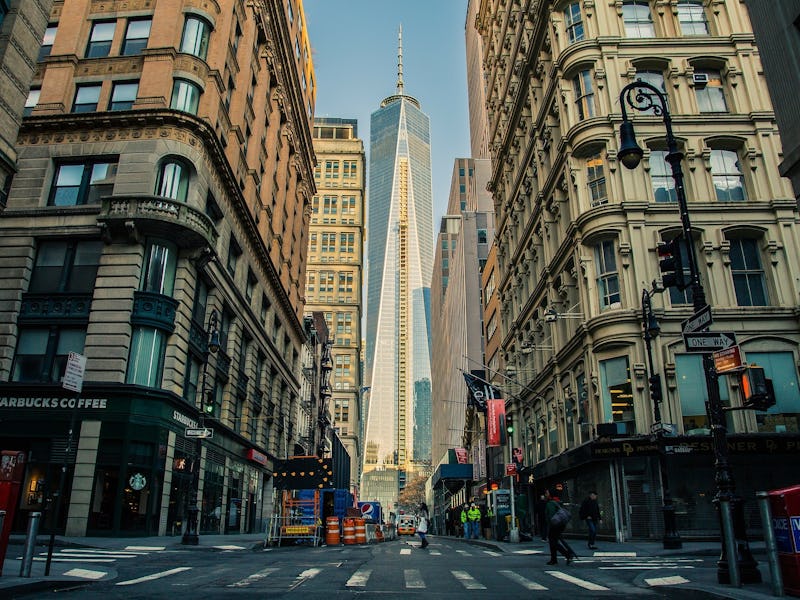Can Google Make New York Into a 'Shared City'
Google is offering New York City an upgrade.

Today and Friday, ‘Inverse’ is covering the Municipal Art Society of New York’s sixth annual MAS Summit. More than 100 speakers and a thousand attendees are gathering over two days to discuss a wide range of issues affecting New York City, and brainstorming solutions that will help the Big Apple meet the needs of all New Yorkers in the five boroughs now and in the future.
The United States’ metro areas will experience an influx of 90 million people over the next 30 years. That’s peanuts compared to what will happen to many other parts of the world, but the country’s cities will still need to transform to accommodate growth. How are we going to embrace the era of density without sacrificing quality of life?
The answer is kindergarten simple: share. At least that’s the idea being pushed by Daniel Doctoroff, the CEO of Sidewalk Labs, an urban innovation startup created by Google that aims to use technology to improve the lives of present and future urbanites. Doctoroff held a presentation on Thursday in which argued that “The Shared City,” a city in which citizens use rather than covet resources, can offer bigger freedoms in smaller spaces.
Doctoroff’s plan is essentially to double, then triple down on the sharing economy, but he’s mostly focused on emerging technologies and applying them smartly. There are three particular ideas that Doctoroff thinks will be instrumental into modernizing (or post-modernizing) New York City. The first is changing the way we “do” buildings. Doctoroff acknowledges that building and zoning codes have made it very easy to ensure developers adhere to wanted standards, but he also thinks these codes “generally restrict how you can use a given building,” making real estate inflexible and creating “boring neighborhoods.”
The big thought here is that if every building and every room were fitted with sensors that could measure smells and noise levels and keep track of activities, building codes would become obsolete. Technology would allow tenants to collectively decide what is acceptable in their homes and offices. Ownership would be absolute, and that would be good news for more than just AirBnB hosts. Enterprising people could turn apartments into nightclubs and stoops into storefronts. “Citizens would focus on being good neighbors,” Doctoroff suggests, instead of following rules they didn’t write.
Doctoroff also wants people to think of transportation differently, as a service rather than an asset. Automated vehicles could actively share themselves and save everyone a hell of a lot of time on parking (while eliminating a major source of income for the city). Fewer cars — and it will take time to decrease those numbers — will also give the city to plan more flexibly, creating more pedestrian-friendly neighborhoods and opening up more bike lanes. Walking, it should be noted, is good for commerce.
A Toyota Prius modified into a driverless car.
The last thing Doctoroff pointed to was LinkNYC, a network-in-progress that will turn old payphones into modern communication hubs, with wifi access, video call devices, access to city services — all for free. It’s a simple yet ingenious way to allow people in public spaces to stay connected to one-another and make their lives more convenient. Set to deploy by late 2015, LinkNYC is “changing our most outdated infrastructure into our most modern,” said Doctoroff.
In a sense, Doctoroff was presenting helpful alternatives and, in a very different sense, he was planting a flag. Google has arrived in New York and it’s looking to monetize the city.